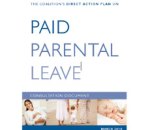This article originally appeared on Hoyden About Town.
tigtog asked if someone could do a Friday Hoyden piece on Ursula K. Le Guin for her 80th birthday… last year. Le Guin’s 81st birthday was yesterday on the 21st October 2010: this is going up in time for it to still be her birthday in her hometown of Portland, Oregon.

A little capsule summary for people who haven’t read her work: Le Guin is a novelist, poet and essayist. She is best known for science fiction and fantasy, particularly the six Earthsea books (five novels and a collection of stories) set in an archipelago world with advanced magic and pre-industrial tech; and various books set in her Hainish universe, which is a future series in which Earth, among other planets among relatively nearby stars, turn out to have all have hominid species on them, established some millions of years ago by a still existing ancestral species the Hainish, in a series of biological/sociological experiments. This has allowed her to write, for example, The Left Hand of Darkness, Winter’s King and Coming of Age in Karhide, set in a world of primates with a sort of oestrous cycle in which their bodies can become either male or female, and who have otherwise no gender or sexuality; and The Matter of Seggri, about a world on which there are about sixteen women born for every man, and men are kept apart with their role in society being purely exhibition of strength, sex, and providing sperm.
Le Guin is something of a goto name for someone who wants to make sure their list of Great Science Fiction includes something, anything, by a woman: she’s white, she has by now become a big name and is award-winning and Taken Seriously (see Guest Post by Alisa Krasnostein: The Invisibility of Women in Science Fiction from June). I… do think she’s worth reading anyway! But don’t stop there, I doubt she’d want you to.
I’ve enjoyed Le Guin’s writing for years, but here is her crowning Hoyden moment for me, in a 2001 interview by Nick Gevers, a science fiction editor and critic:
[Gevers asks] Who, for you, are the finest SF authors now writing — both your fellow feminist writers and more generally?
[Le Guin answers] First I am to list fellow feminists and then… non-fellow anti-feminists? Come on, Nick, let’s get out of the pigeonholes. If feminism is the idea that differences between the genders, beyond the strictly physiological, are an interesting subject of study, but have not been determined, and so are not a sound basis for society to use in prescribing or proscribing any proclivity or activity — which is what I think it is — then I probably don’t read any non-feminist SF writers, these days. Do you?
Here’s a few selected pieces of Le Guin’s writing:
- Two chapters from The Left Hand of Darkness
- A Whitewashed Earthsea: How the Sci Fi Channel wrecked my books. (on a TV adaption of A Wizard of Earthsea)
Le Guin has a fairly large website with links to most of her recent online writing.
If I had to recommend a single piece of writing of hers, I would say that its the short story The Day Before the Revolution (probably easiest to find in the collection The Wind’s Twelve Quarters), which probably benefits a lot if you read The Dispossessed for context first (The Dispossessed is a fine novel, so not just for context). The Day Before the Revolution was published when Le Guin was 45 years old. She wasn’t old at the time, and I am not old yet, but it is the closest I come to understanding how it might be.
Happy 81st birthday Ursula K. Le Guin!

